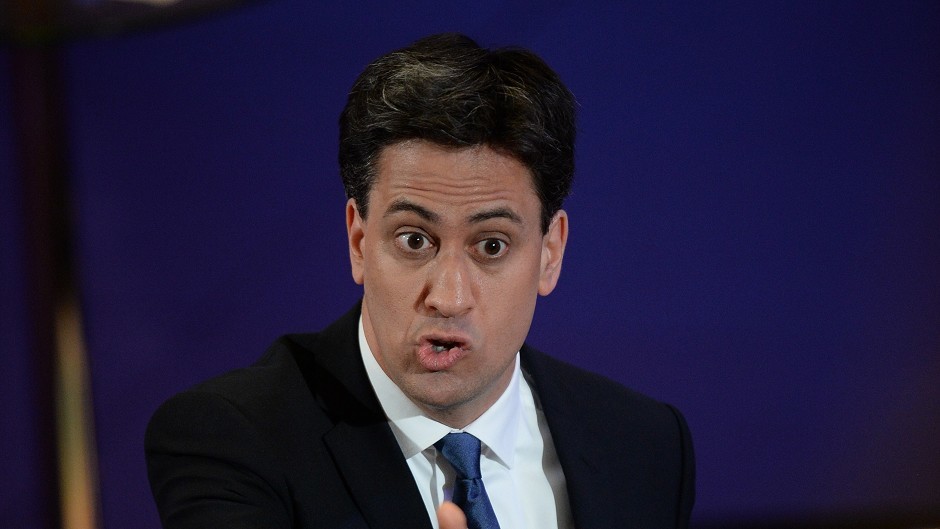Ed Milband said he would prefer to remain in opposition than get into Downing Street on the back of the SNP.
The Labour leader said he would not sacrifice the future of the UK and the country’s security to nationalist demands.
But First Minister Nicola Sturgeon said the people of Scotland would never forgive Labour if it meant the Conservatives getting back into office.
Mr Miliband made his comment during a Question Time general election special on BBC 1 last night, where he, David Cameron and Nick Clegg separately faced aggressive questioning from a from a studio audience.
POLL: Have your say on which leader performed best in the Question Time General Election special
When asked about working with the SNP, Mr Miliband rejected it outright stating: “If it meant that we weren’t going to be in government not doing a coalition, not doing a deal, then so be it.
He added: “I am not going to sacrifice the future of this country, the security of this country. I am not going to give in to SNP demands around Trident, the deficit or anything like that.
“I am not going to have a Labour government if it means deals, coalitions with a Scottish National Party.”
Mr Miliband’s assertion reverberated in a follow up programme on BBC Scotland when Ms Sturgeon was questioned.
She told the audience that as someone who was deputy first minister in a minority government, it was impossible to get policies through parliament without opposition support.
“I heard Ed Miliband and he sounded awfully like he was saying, and I hope that I am wrong about this because I think people across Scotland and much of the UK will be appalled if I am right, he sounded as if he was saying that he would rather see David Cameron and the Conservatives back in government than actually work with the SNP,” she said.
“Now, if he means that then I don’t think people in Scotland will ever forgive Labour for allowing the Conservatives back into office. But if he is a minority government then he will not be able to get policies through without winning support from other parties.”
Earlier the prime minister ruled out any form of coalition saying he planned to spend the next seven days campaigning for an outright victory.
He told the audience that when you have a “great programme” it was wrong to have to water it down “closeted in a dark with Nick Clegg”.
“I want to do the right thing with the government,” Mr Cameron said.
“I want to be clean with people with seven days to go when faced with an alternative of a Labour government backed by the SNP, people who do not want our country to succeed or even exist.”
Mr Clegg reiterated his assertion that the Lib Dems would first try to seek a coalition deal with the largest party in terms of votes and seats after May 7.
He said: “The party that gets the biggest mandate from you, in other words the party with the most votes and the most seats, even if they haven’t got a slam-dunk result, has in a democracy the right to make the first move, to reach out to other parties to assemble a government if they so choose.
